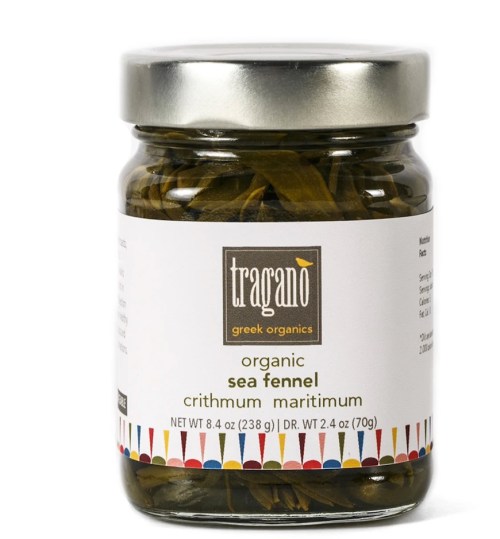Our editors independently select these products. Making a purchase through our links may earn Well+Good a commission
While all five Blue Zones are known to be longevity hot spots and regions where people regularly live to be over 100 years old in good health, each one is special in its own unique ways. Okinawa, Japan, for example, boasts an especially high concentration of female centenarians—about 30 times more than in the U.S. And in Ikaria, Greece, rates of dementia are lower than average.
Experts in This Article
Elena Paravantes-Hargitt, RD, is a registered dietitian living in Greece. She specializes in the Mediterranean diet and is the author of The Mediterranean Cookbook for Beginners.
Maria Kalomenidou is the founder and CEO of Zēlos Authentic Greek Artisan, which sells Greek teas and artisan foods.
The island is ground zero for the Mediterranean diet, a way of eating that heroes foods high in omega-3s such as fish, nuts, and olive oil. Veggies—high in antioxidants—are abundant at every meal, too. Both healthy fats and antioxidants are directly linked to brain health, which is one reason why cognitive decline may be less prevalent in this region.
Watch the video below to learn more about the health benefits of the Mediterranean diet:
Fish, nuts, olive oil, and veggies are all standard fare here in the States, too, but there’s one food commonly eaten in Ikaria that’s less well known in America: sea fennel. And it’s brimming with benefits. “Sea fennel—also known as rock samphire and kritamo, in Greek—is a wild shrub that’s found on coasts across Europe, particularly in rocky areas. The leaves are consumed, and they provide a spicy, salty, and aromatic flavor,” says Elena Paravantes-Hargitt, RD, a registered dietitian specializing in the Mediterranean diet, and the author of The Mediterranean Diet Cookbook for Beginners ($14).
In Ikaria, sea fennel grows wild, which is why it’s so popular there, according to Maria Kalomenidou, founder and CEO of Zēlos Authentic Greek Artisan “On the Greek islands, people harvest sea fennel along the beaches,” she says. “As more people became aware of sea fennel, it began to be sustainably cultivated on small farms. You can sometimes find it fresh in Greek farmers’ markets, but more often it’s harvested, pickled in a light brine, and jarred so that it can be shipped around the world and enjoyed throughout the year.” (Kalomenidou’s company sells and ships it worldwide this way, FYI.)

Tragano Greek Organic Sea Fennel — $13.00
This certified organic sea fennel is small-batch grown and can be used in salads, soups, and seafood dishes.
And both she and Paravantes-Hargitt say the benefits of sea fennel definitely make it worth trying. “It’s high in vitamins A, C, and E, as well as phytonutrients, polyphenols, and antioxidants,” Kalomenidou says. Polyphenols and antioxidants have both been linked to cognitive health, making sea fennel just as much of a brain-boosting food as other staples in the Mediterranean diet. But Paravantes-Hargitt says it’s also high in another important nutrient for brain health: omega-3 fatty acids.
In terms of how it tastes, sea fennel’s flavor profile is similar to asparagus, only a bit saltier with a hint of spice. It’s most commonly used in salads, soups, and seafood dishes. “Sea fennel is especially tasty and a lighter substitute for capers,” Kalomenidou says. “You can rinse off the brine and add a few sprigs to baked fish, on bagels and lox, or tomato bruschetta. Lightly chopped sea fennel also adds a nice texture and flavor to tomato or seafood soups, ceviche, and fresh salads.”
Another option is to lightly boil it and then drizzle olive oil and vinegar on top for a simple side dish, which is how Paravantes-Hargitt prefers to enjoy it. “Sea fennel can also be dried and then crushed into powder to be sprinkled on food as an alternative to salt,” she says. Pickling sea fennel and adding it to bean dishes, yogurt-based dips, in omelets, or on toast are other favorites for her.
That’s a lot of versatility for one shrub, right? There’s certainly no shortage of ways to experiment with sea fennel, and however you serve it up, you’ll be doing something great for your brain in the process.
Oh hi! You look like someone who loves free workouts, discounts for cult-fave wellness brands, and exclusive Well+Good content. Sign up for Well+, our online community of wellness insiders, and unlock your rewards instantly.
Sign up for the Well+Good SHOP Newsletter
Get exclusive deals on wellness, beauty, fitness, and food products that have been hand-picked by our editors.
Got it, you've been added to our email list.










